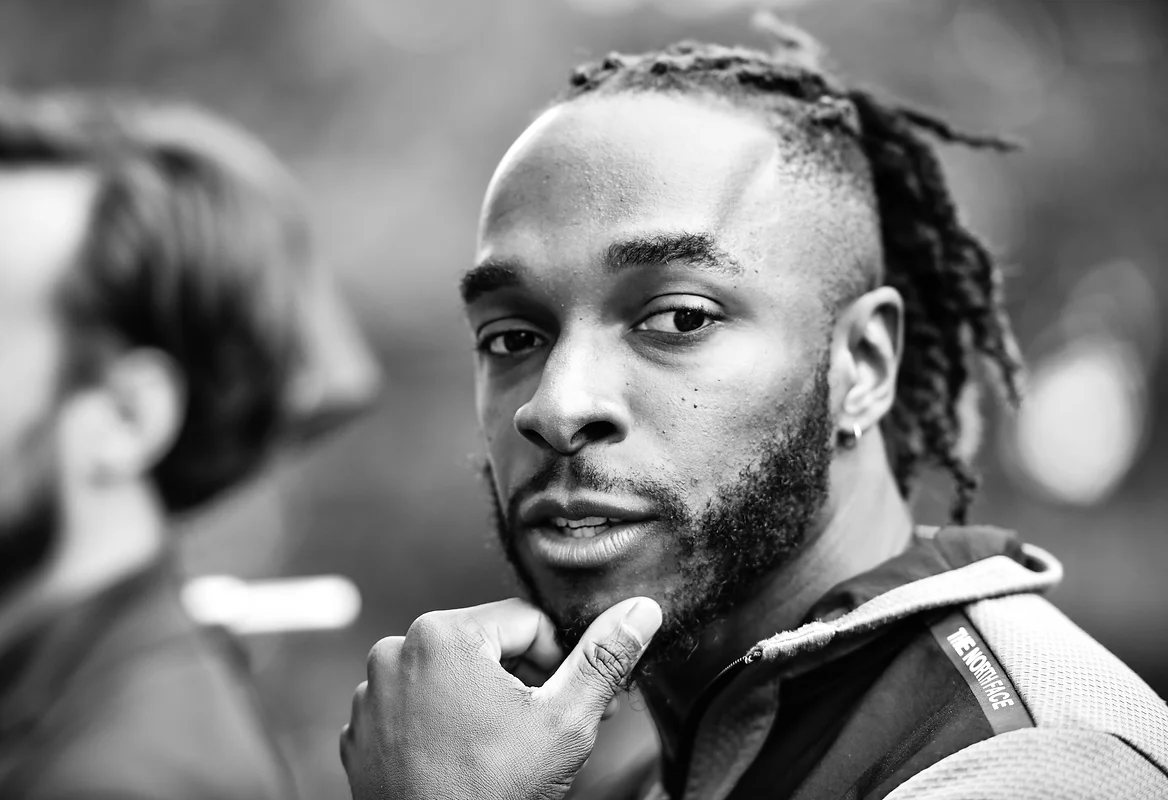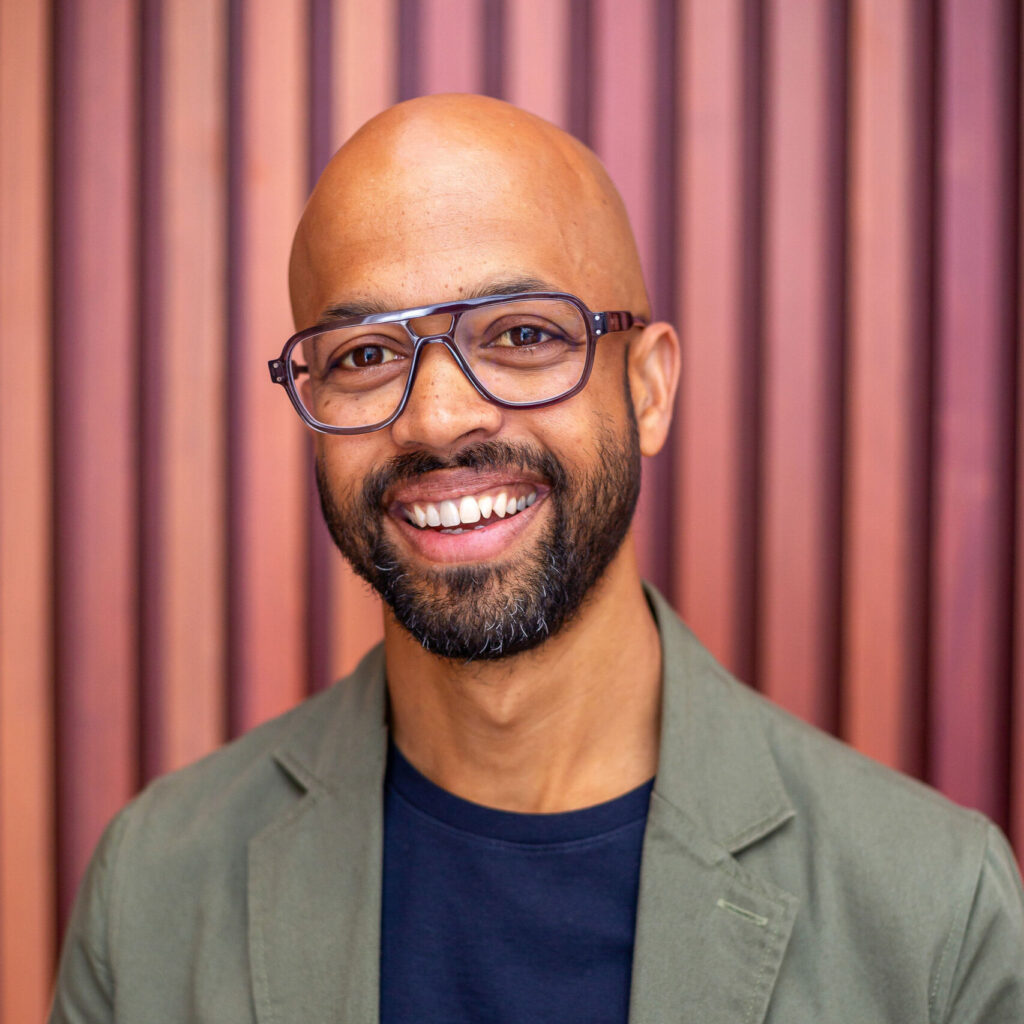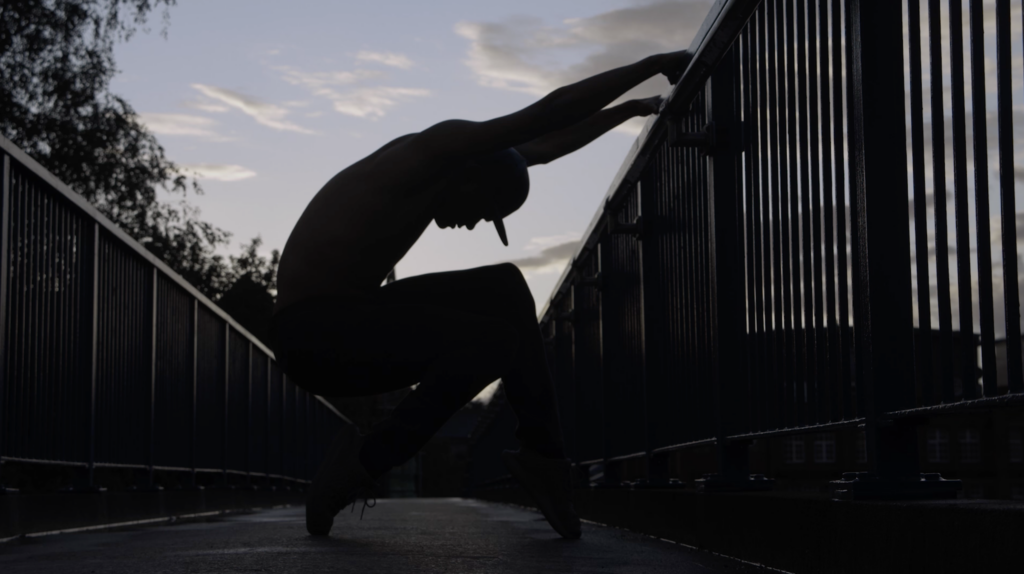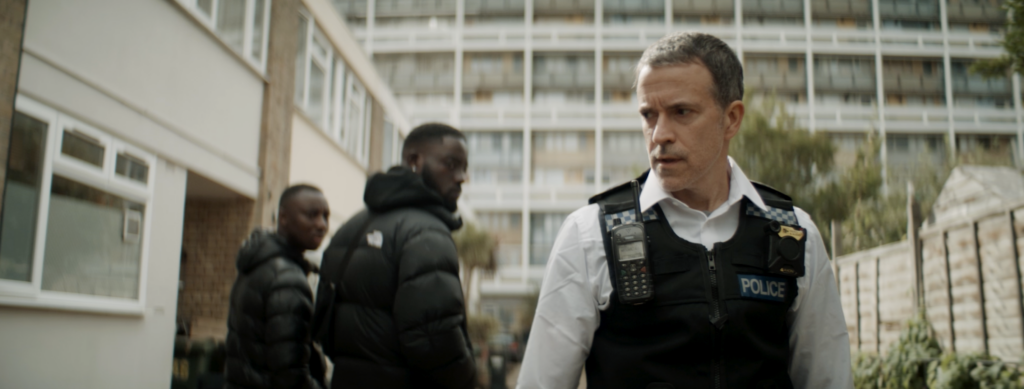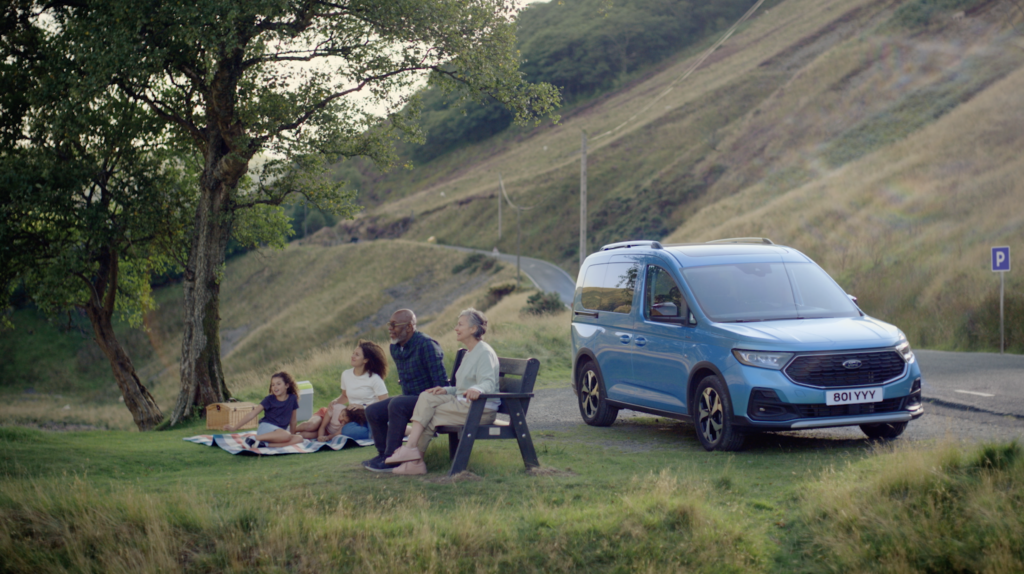Meet the Makers – Davy Lazare
Davy Lazare is a Caribbean-born writer, director, and poet based in London. He began his career leading filmmaking workshops for prison offenders, inspiring his focus on social and cultural change. His work includes Bodies, a spoken word and dance film, and You Fit the Description, a self-funded short tackling police trauma. With over 12 years in the industry, Davy has directed commercials for brands like Ford and worked with clients such as Def Jam, Channel 4, and ITV.
In this Q&A with Studio 5’s managing director, Darren Sital-Singh, Davy discusses his journey, the importance of diversity in leadership, and encourages young Black creatives to keep honing their craft.
How did your journey into directing within the advertising industry begin, and what inspired you to pursue this path?
I started my career in the film industry as a camera operator and editor. In those roles, I was responsible for taking other people’s footage and content and turning it into a cohesive story. That process was an invaluable education for me. It taught me how to piece together a film, even without being the overarching visionary for the project. It was more about understanding the mechanics of storytelling through editing and visuals.
Starting in the camera department and as an editor gave me a solid foundation before I got a job at the advertising agency, Hogarth, where I was an in-house director and filmmaker. It was similar in many ways to my previous roles – I was still operating cameras and editing – but over time, they recognised that I had the skills to direct.
At that point, it wasn’t just about having the technical know-how; I needed actual opportunities to direct. It’s a tricky transition, but that’s essentially how it all began for me – gaining the skills and then getting the chance to use them in a directing capacity.
For someone looking to break into the industry, how did you decide you wanted to be a camera operator? And secondly, how did you go about becoming one?
From age 14, I knew I wanted to work in film, and when my dad bought me my first camera at 15, I fell in love with filmmaking. I couldn’t draw, but the camera became my way of creating. Though storytelling had always been part of my life through rap and poetry (I even won a poetry slam competition), I didn’t initially think I could be a director. I saw myself more as a cameraman or DOP but realised the technical side wasn’t for me – they’re like scientists the way they understand lighting and all its technical aspects.
Over time, I learned how to shoot, edit, and tell a story, and I stopped doubting myself as a director. Early on in my career, I chose to work with smaller production companies to avoid long hours on big sets with little pay. Being on set showed me the vast collaboration needed to bring a project together.
How did your first opportunity with Hogarth come about, especially considering the challenges of breaking into networks that can feel closed off due to issues like class, gender, or race? How did you navigate those barriers to get that role?
I got my job at Hogarth through, well, nepotism—it’s just how this industry often works. At the time, I was working at another company that was doing some really interesting stuff, but I absolutely hated it. I was treated terribly, with no respect, and I knew I had to get out.
One day, the company hired a freelance marketer, and it turned out her husband was the managing director at another company—let’s just say it was my future employer. I was looking for a new job, and she mentioned her husband’s position and offered to connect us. I had an interview with him two days later, and that’s how I got the job at Hogarth. It just goes to show—it really is about who you know and the importance of networking.
Can you talk about a project where you felt your perspective as a Black director brought something unique or essential to the final piece?
I’ve definitely worked on projects that could only have been made by a person of colour or a Black man. One that comes to mind is my short film You Fit the Description. It’s a 12-minute film I wrote and directed, following a white police officer who is stopped and searched by a young Black man, and then put on trial by the community. Telling a story like that—about profiling and the harm Black people face from police—comes from personal experience. I’ve been stopped and searched myself, and felt that fear of being pulled over just because I’m Black.
Being Black was essential to making that film, but there was also a powerful moment during production that highlighted this. One of my crew members, a Black woman and my second camera assistant, noticed that the two people above her—the first camera assistant and the DOP—were white men. She emailed me, concerned about the diversity of the set and whether it would be a safe space for her. I really appreciated her honesty, and I was able to reassure her that the rest of the crew was very diverse and that she would be working in an inclusive environment.
As a Black director, I could understand where she was coming from and address her concerns in a positive way. I’m not sure that response would have been the same if I hadn’t been in her shoes before.
Have you been on a shoot or on set where you felt uncomfortable?
Yes, I’ve definitely felt uncomfortable on set. I can give you two examples—one that was blatantly wrong, and another where it was more subtle but still real.
The first was years ago when I was at the Spa racetrack in Belgium, filming motor racing. I was using a black scooter to get around the track, and this German guy saw me and said, in a thick accent, ‘The scooter’s black, the driver’s black, it’s fantastic!’ My white colleagues laughed, but I didn’t find it funny at all. I was the only Black crew member and didn’t want to make a scene, so I just pretended to laugh along, but it was deeply uncomfortable and unnecessary. I still don’t understand what the joke was supposed to be.
The second was on a film shoot in Slovenia. We were there for about five or six days with a crew of around 25 people, and I was the only person of colour, not just the only Black person. By day four, I realised I hadn’t seen another person of colour in days. No one said or did anything wrong, but it’s that feeling of being in an overwhelmingly white space and being noticed, sometimes stared at, just for being there. It wasn’t overtly hostile, but it definitely made me feel out of place.
What advice would you give to young Black creatives aspiring to break into the advertising industry, especially in roles like directing or producing?
Just start creating—don’t wait for permission. Too often, young creatives wait for approval or funding, and when it doesn’t come, their ideas never see the light of day. So, keep making things and practising. Filmmaking is about capturing your version of reality, and there’s no one right way to do it. The more you create, the better you’ll get, and you’ll waste less time when it matters.
Also, get used to making quick decisions. I once focused too long on an extra shot during a shoot, and we missed the perfect light for our final hero shot. It taught me the importance of moving quickly to avoid missing key opportunities.
What are some initiatives or changes you’ve seen recently that give you hope for a more inclusive future in the advertising industry?
There’s a lot happening in the advertising industry that gives me hope for a more inclusive future. Filmmaking is now affordable and accessible, allowing diverse stories to emerge, especially at grassroots levels. However, I still see a lack of diversity behind the camera on commercial shoots, and storytellers from marginalised backgrounds often aren’t paid for their work.
The key to change is getting more diverse voices into hiring positions. For example, I’m organising a shoot for a Nigerian fintech group, and I’m ensuring the crew is both elite and diverse. Leaders need to build real relationships with diverse talent to make inclusive hiring decisions, rather than just ticking boxes. It’s not enough for a CMO or chief creative officer to simply say, ‘We need more diversity’ and then Google for Black directors. That approach feels superficial. Instead, leaders need to genuinely invest in building authentic relationships with diverse talent. It’s about more than just ticking boxes or outsourcing to add a little colour; it’s about real connections that can drive meaningful change.
More about Davy’s latest project:
A powerful 90-second branded content film for the charity Criminal Justice Alliance’s Give a Book initiative, this campaign promotes reading in prisons and disadvantaged communities, with the goal of fostering rehabilitation and connection. The film tells the poignant story of a father in prison trying to reconnect with his teenage daughter through the shared experience of reading.
Davy highlights the deeper issues within the UK’s prison system, particularly the revolving door phenomenon, where many prisoners re-offend and return to jail. The film sheds light on the importance of maintaining family ties and providing inmates with meaningful, positive activities—like reading—to help reduce recidivism.
The production itself is groundbreaking, as it will be shot at LAMDA’s virtual production studio, marking Davy’s first experience with virtual production. The project features a renowned actor, Ralph, who is starring in a major upcoming Marvel film but has generously dedicated his time to this charity effort, showcasing the power of giving back, even at the height of success.
The film will premiere in November at Warner Brothers in London, followed by an exclusive after-party, emphasising both the significance of the project and the creative collaboration behind it. Davy’s passion for creating meaningful content and the contributions of a dedicated team reflect the potential for media to promote positive change within society.
